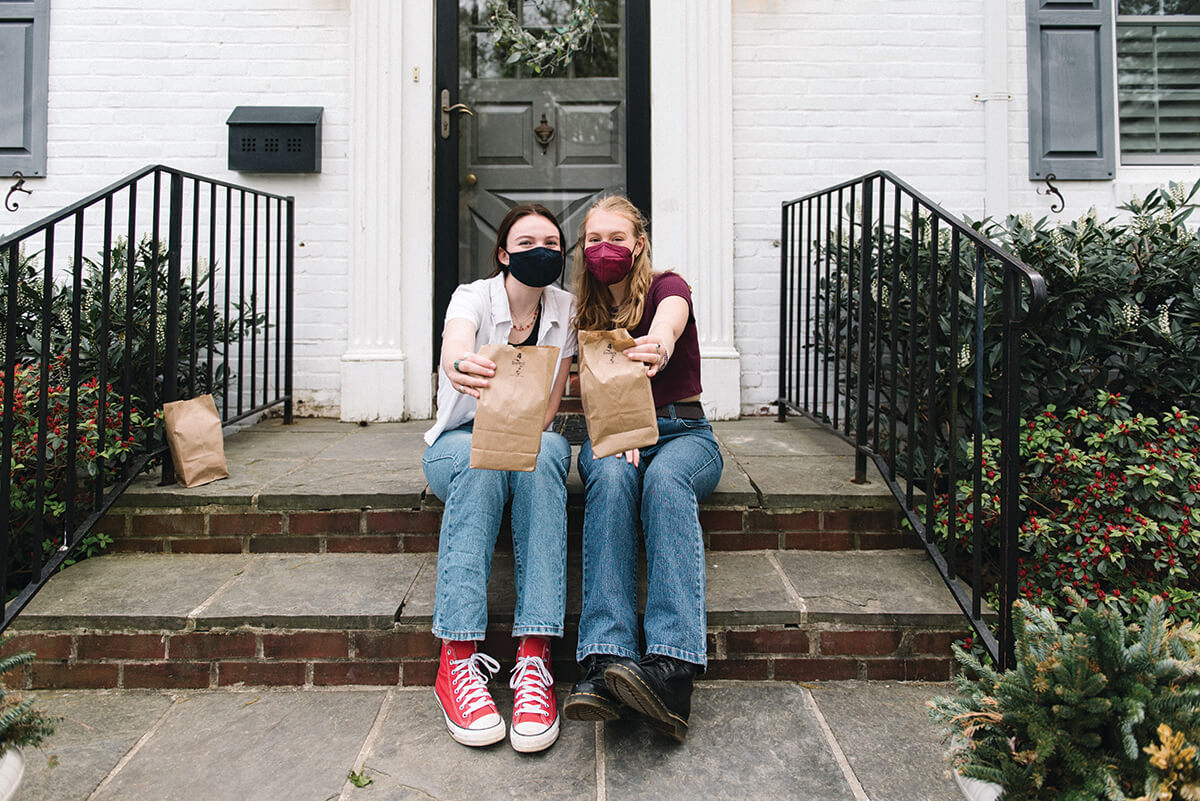Health & Wellness
Two Local Teenagers Tackle Menstrual Inequity With the Period Poverty Project
Every week, volunteers distribute hundreds of feminine hygiene packs.

Sara Carney and Ellie Frisch are saving the world—one maxi pad at a time.
The Towson High School juniors—“next door neighbors and best friends, very convenient,” laughs Frisch—are the driving force behind the Period Poverty Project, launched last year.
At the beginning of COVID-19, they learned about menstrual equity after Stoneleigh neighbor Abby Letocha started creating “period packs” for classmates living in poverty through a partnership between the Girl Scouts and Baltimore County’s nonprofit Student Support Network. Carney and Frisch volunteered to help, but since Letocha, a senior, was heading to college, they realized someone needed to take over.
Since then, they’ve added their own Gen-Z spin to the endeavor—branding the efforts the Period Poverty Project and creating a heavy social media presence.
They’ve come far the past 10 months, raising both their own awareness and others’. For Carney, 16, “the extent of my knowledge of menstrual inequity was being mad you had to put a quarter in to get a tampon at school. I mean, who carries around quarters?”
Now she realizes the discrimination runs deeper. Periods are often stigmatized—a term the teens use often—because they can be seen “as a gross thing,” says Carney. Before they got involved, neither Carney nor Frisch, 17, had really thought about how expensive feminine products are—in many states they are still taxed as luxury items—and what it would mean to not be able to afford the necessity. Part of their advocacy is simply getting the word out.
“This is a silly stereotype, but even boys in our grade follow our account,” says Carney.
But there’s also the work. Every week, volunteers create hundreds of packs that are distributed through the Student Support Network’s food and supply drive. Carney and Frisch estimate they’ve helped distribute 12,000 kits since last August.
The plan is to continue deliveries through the end of the school year, putting feminine hygiene products directly into school bathrooms until HB 0205 goes into effect. The new legislation requires they be available at no charge to students in at least two women’s restrooms by October 2022, then all by August 2025.
It seems like a happy ending to their passion project. “We need to make things happen in our legislature, while also getting past not wanting to talk about it,” says Carney. “Because if periods aren’t talked about, then why should period poverty be talked about?”